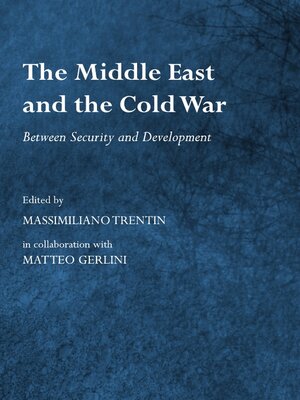
Sign up to save your library
With an OverDrive account, you can save your favorite libraries for at-a-glance information about availability. Find out more about OverDrive accounts.
Find this title in Libby, the library reading app by OverDrive.



Search for a digital library with this title
Title found at these libraries:
| Library Name | Distance |
|---|---|
| Loading... |
There have been quite a lot of attempts to find out exactly what the impact of the Cold War on the Middle East was, and this from different disciplinary perspectives. This volumes tries to integrate the historical debate with new fresh insights thanks to the works of young scholars who are currently engaged in archival and field research. Algeria, Sudan, Jordan as well as Syria, Israel and Iran during the embattled 1950s and 1960s are the objects of this volume, which draws a much more complicated picture than one might expect. As a matter of fact, both the Cold War superpowers and their European allies proved constrained in their interventions to shape the political and economic dynamics of the region according to their own plans: on the contrary, Middle Eastern rulers enjoyed remarkable autonomy to achieve their goals, and fully exploited, in rhetorics and practice, the competition and rivalry which divided the industrial countries during the Cold War. The process of decolonization and the related construction of new patterns of national sovereignty and development were major issues at stake for both the Cold War camps and their postcolonial partners in the Middle East. Though peculiar, the region proved to be no exception to global trends. The so called "liberal" Fifties as well as the "radical" Sixties of the XXth century were times of great conflict and change, setting much of the institutions and patterns of development which lasted for three decades, at least, but also providing fresh opportunities for new social and politics groups to emerge and consolidate in power. In light of the current events in North Africa and the Middle East at large, this volume is a highly valuable contribution to the deeper and wider understanding of the region in itself as well as the patterns of its integration within the wider, global world







